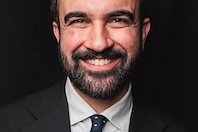Rupert Shortt on Benedict XVI
Rupert Shortt, Benedict XVI: Commander of the Faith, (London, Hodder & Stoughton, 2005)
This study of Benedict XIV by the religion editor of The Times Literary Supplement offers an intriguing and informative investigation of the man and his theological evolution which also acts as a medium in which the course of twentieth-century ecclesiology is explored. As a piece of investigative journalism it is stylish and sure-footed and based on interviews with such authoritative voices as Nicholas Lash, Rowan Williams, Nicholas Boyle, Tina Beattie, Timothy Radcliffe and Aidan Nichols on the British scene and Charles Curran, Richard Neuhaus, Gerald O'Collins, Notker Wolf and Joseph Komonchak overseas.
The author is not aiming to offer a comprehensive portrait of the man or the pontificate so far, but an understanding of the varied and sometimes conflicting strands that have gone into the making of an enigma. The champion of liberal reform at the Second Vatican Council is the same one who has since appeared to denounce its subjection to the 'dictatorship of relativism'. The fierce critic of Catholic integration of yoga and Eastern meditation practices is the maker of generous personal donations to the translation into German of the Lotus Sutra. The man described as gentle, courteous and humorous by some is seen as the cold, harsh enforcer of internal church repression by others. Shortt does not fall into the trap of portraying this as a simple liberal-conservative split but digs deeper to find the underlying theological foundations of Josef Ratzinger's view of the church. Within the exploration he covers areas such as ethics, ecumenism, liturgy and ecclesiology in a way that illuminates the trouble sports in many debates.
The study begins with a critical evaluation of Benedict's account of his German roots in his memoir Milestones, with its admiring evocation of pre-war Bavaria and of Catholic resistance to Hitler. In its account of the young Josef's progress through studies for the priesthood to work as an academic theologian the book offers clues both to his early ressourcement-based reformism and to his later retrenchment into a more hostile view of the changes wrought through the council in which he played so significant a part. In particular, this discussion gives helpful insights into the theological issues at stake that are not always clear to an audience forty years later. Ratzinger's hostile verdict on Gaudium et Spes, which did so much to usher in a spirit of aggiornamento, on Episcopal collegiality and on the liturgical reforms he has so bitterly lamented since, are explained both in his deep-rooted resistance to secular modernity and in the context of their wider theological implications. At the heart of much of this, and of his later conflicts with theologians such as Karl Rahner, Leonardo Boff and Jacques Dupuis is a rejection of any notion of self-made theology which places what he sees as an idolatrous emphasis on human perceptions and constructs or the reduction of the supernatural to programmes of politically or socially-motivated action.
The years as prefect of the Congregation of the Doctrine of the Faith receive critical comment, especially of what is perceived as Ratzinger's dual role as judge and jury, and a telling point is the unwillingness of a number of Shortt's interviewees to be named. The conflicts over liberation theology, pastoral action for gay and lesbian people, feminist theologies and interfaith dialogue succeed one another, inevitably building up a portrait of someone whose conservative opinions were becoming increasingly entrenched. Opposition to some of his papal predecessor's more open-handed approach to other faiths, or to the emergent theology of Latin America, is offered as proof of this hardening of the arteries, and although honest attempts are made to understand Ratzinger's stance on its own merits, we hear little from theological voices who would be in agreement with him on these matters.
While this book is by no means uncritical, there is an undercurrent of sympathy and at times an even-handed attempt to explain the enigma that is Benedict XVI in his own terms. For this alone, as well as for its clarity in explaining complex shifts within the modern church, it is worth reading.
first posted LONDON - 5 March 2007 - 640 words















